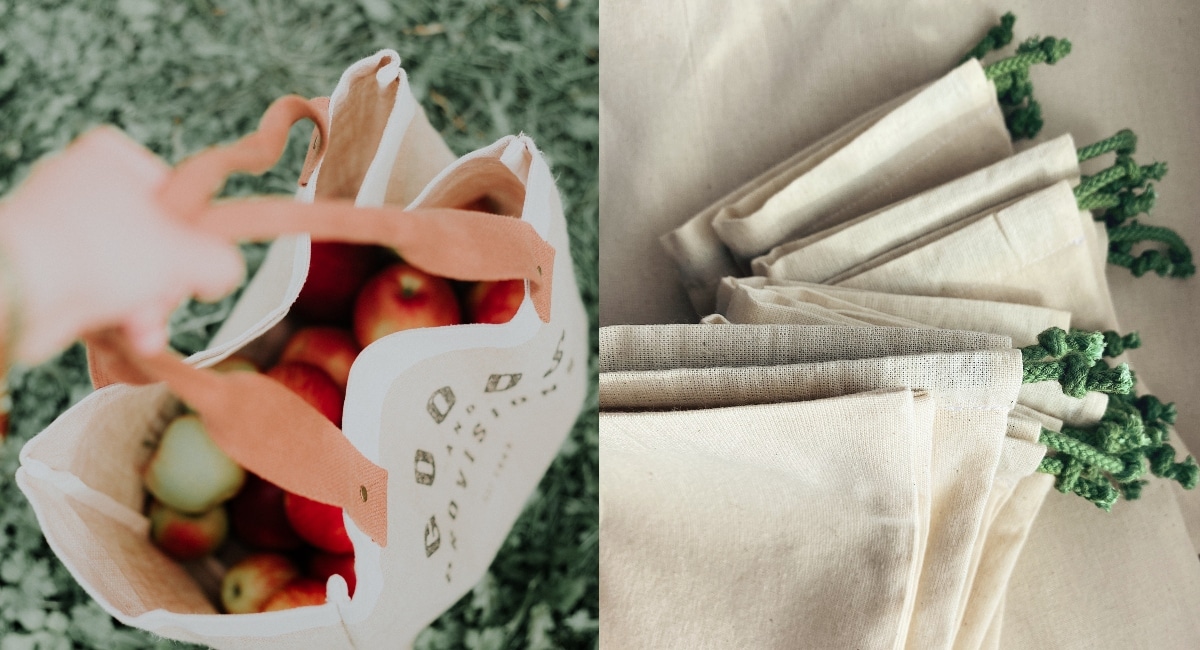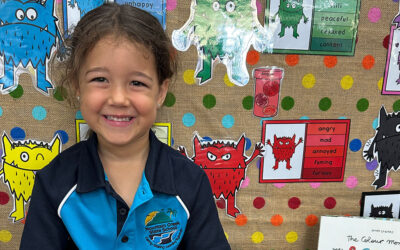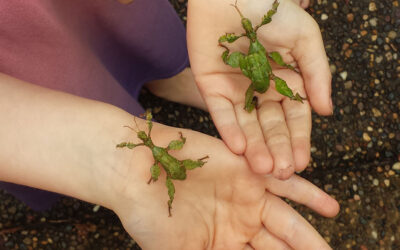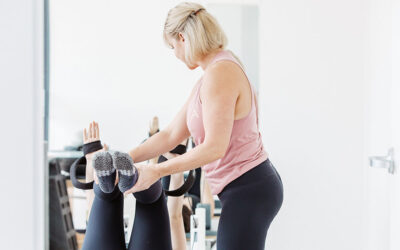One of the simplest ways we can all make a positive change to the health of our planet is to reduce our everyday household waste. Even as time-poor families, there are many simple swaps we can make that don’t cost the Earth (and could help save it)!
Get a stash of reusable water bottles
Bottled water is costly on the environment and your wallet. Australians purchase roughly 15 billion plastic bottles every year. Many of these end up in landfill or in our waterways.
It takes at least 3 litres of water and 250ml of oil to produce 1 litre of bottled water. Want another frightening statistic? It takes approximately eight years of refilling your plastic water bottle with tap water to recover the initial cost of buying one bottle of water!
Switch up your plastic water bottle for a reusable one. They come in a range of colours, patterns, sizes and materials. You’ll find an increasing number of drinking fountains and water refill stations in your local parks and playgrounds, as well as at schools and supermarkets across south-east Queensland.
Invest in reusable straws
Queensland introduced a ban on single-use plastic items in September 2021. That ban included single-use plastic straws.
Roughly 10 million single-use plastic straws are being used in Australia every day. If you look at it in annual figures, it’s somewhere in the vicinity of 3.5 billion a year. They are a common pollutant of our beaches and are harmful to marine animals.
Plastic doesn’t break down in the ocean. It takes hundreds of years to break into smaller pieces known as microplastics. When ingested by even the smallest phytoplankton, these microplastics can do a lot of damage. They can block digestive tracts of marine animals, reducing their desire to ear. Some species simply starve and die.
Plastic straws can be an important utensil for people with a disability who need a safe way to drink. For those who can’t get by without using a straw, there are plenty of alternatives to help you avoid single-use plastic. Reusable straws are available in silicon, glass or metal and come in a range of different styles and colours.
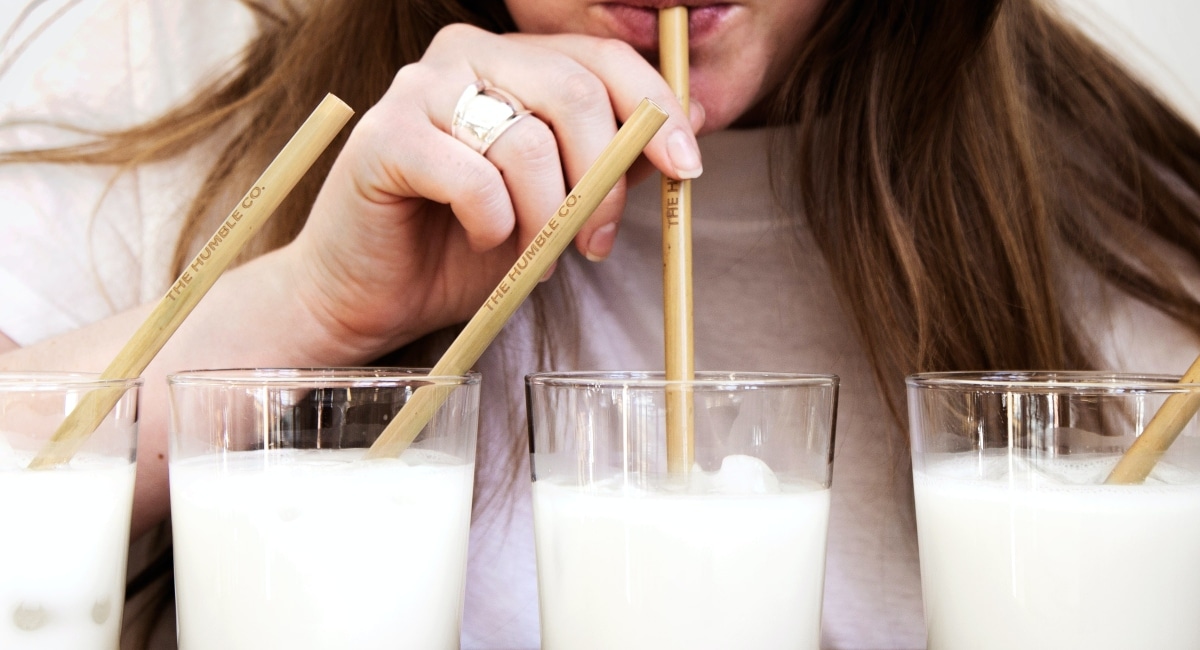
Use beeswax wraps for school lunches
A genius invention that we forgot about for a century or so. Our great grandparents were using these before plastic cling film took over as our go-to food storage solution. It’s time to go back to the old school!
Beeswax wraps are a safe, hygienic and environmentally-friendly alternative to plastic wrap. The fun designs make them perfect for school lunches, too. Here are a few of the benefits of these handy wraps:
- They are long-lasting. They can last for months, helping to reduce both cost and waste.
- They help keep food fresh longer. Plastic certainly has its benefits, but it’s not a breathable material. This can cause fresh foods to stay warm and wilt. The beeswax and cotton function as natural barriers that are still breathable. This keeps your food fresher for longer.
- They are 100 per cent compostable. Plastic cling wrap takes a long time to decompose (in fact, it never really does). Beeswax wraps on the other hand can break down and biodegrade fully, leaving no trace behind.
- They have antimicrobial properties. Like honey, beeswax has antimicrobial properties that can help keep your food not just fresher but safer, too. That’s especially important when dealing with food.
Reduce food waste
The latest research shows reducing household food waste can lower the cost of living while having enormous benefits on the environment. According to the Fight Food Waste Cooperative Research Centre, Australian’s throw away $19.3 billion worth of food each year. According to Dr Gamithri Karunasena and Professor David Pearson, there is an increasing need for us to change our behaviours. They say families with young children, particularly when both adults are working full-time, have the largest opportunity to reduce food waste. Another way is to reduce wasted meat and fresh vegetables.
Consider the following to reduce food waste in your home:
- Only prepare the amount of food that is going to be eaten
- Where there are leftovers, use them within two to three days
- Create a meal plan so you can shop for appropriate amounts of food
- Plan for changes in meal plans
Compost, compost, compost
Though food scraps do break down, when food waste breaks down in a landfill environment it becomes the main contributor of methane gas. A typical Brisbane household sends more than 260kg of food to landfill each year.
Composting is a free and simple process that you can do with or without a backyard. Garden waste and fruit and vegetable scraps can be composted at home to improve your garden’s health. By running a family compost you can keep the food waste out of the bins and recycle it back into the earth, improving soil conditions in the process.
If you have space in the garden, set up an outdoor compost, this can recycle your food scraps and any garden clippings, and your vegetable patch will love it! However, if you don’t have an outdoor space, you can still reduce your food waste with either a worm farm and/or an Indoor Bokashi composting bin.
Things you can compost include:
- Coffee grounds and paper tea bags
- Fruit and vegetable scraps
- Garden clippings (fresh), including flowers
- Grass clippings (fresh)
- Manure (chicken, horse, cow, ducks)
- Dried leaves
- Dry grass clippings
- Paper towel and cardboard
- Shredded paper
What you don’t want to be adding to your compost are dairy products, manure from carnivores (cats and dogs) or meat scraps. Also avoid plants that are diseased or have been sprayed with pesticides, plastic, treated timber, vegetable fats and oils.
The Brisbane City Council has some fabulous information on compost and food waste recycling.
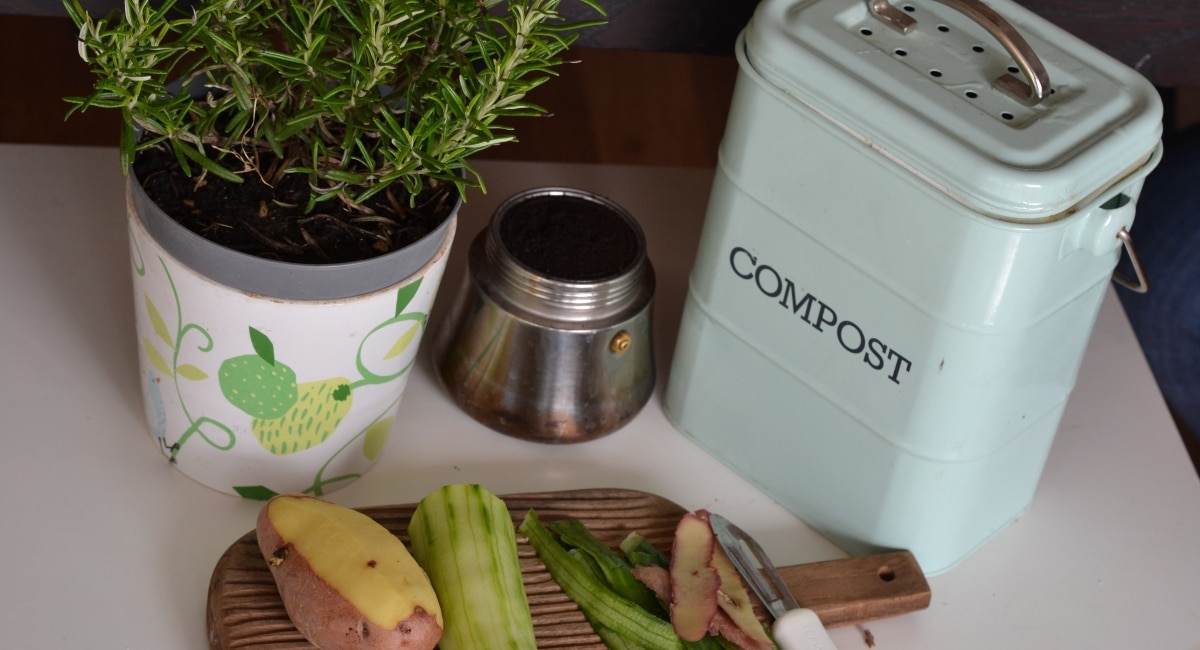
Rethink food storage
While it may seem safe to allow our food to be stored in plastic, new research on the chemicals found in plastic suggests we should be more careful. Stainless steel is the safer option for our kids and our planet.
Eco-friendly alternatives to disposable nappies
Each day in Australia and New Zealand more than 3.75 million disposable nappies are used. That’s a lot of landfill. It takes the conventional disposable nappy approximately 150 years to break down.
Both disposable and cloth nappies have an impact on the environment. Millions of disposable nappies end up in landfill every day, and their manufacture uses finite resources and contributes to global warming. The impact of cloth nappies is mostly a result of the detergents, water and energy used to rinse, wash and dry them. However, overall they tend to be the more eco-friendly option if they are line dried and washed in full loads.
Switching to modern cloth nappies is easier. There are a wide range of readily available cloth nappies with easily cleaning methods, highly absorbent liners and cute and creative designs.
There are also biodegradable disposable nappies on the market. These are made from a range of materials and use non-chemical absoption methods. They are better for the environment than standard nappies, but still take a while to break down in landfill.
Here are four eco-friendly alternatives to disposable nappies:
- Use modern cloth nappies
- Use a nappy washing service
- Use a combination of cloth and disposable nappies
- Use biodegradable nappies
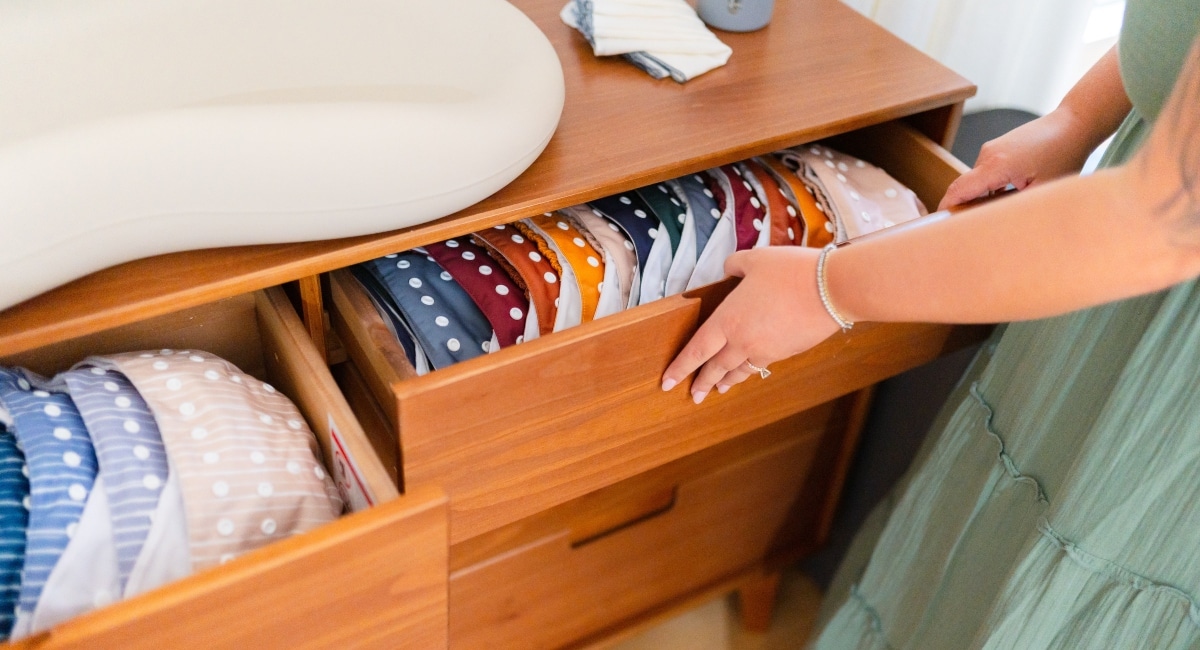
Reusable baby wipes
Did you know there was such a thing? While you’re thinking about eco-friendly alternatives for your bub’s bits, consider resusable baby wipes. They’re a hassle-free and easy alternative to disposable baby wipes that are healthy for baby. They’re also safer for the environment and better for your wallet!
Do the family shop with reusable shopping bags
On average, a plastic bag is used for 12 minutes and takes 1,000 years to break down. With Woolworth and Coles committed to phasing plastic bags out of their stores, it’s time to say goodbye to plastic and hello to eco chic reusables.
But don’t stop at reusable shopping bags. Get yourself reusable produce bags too!
Transporting and keeping food stored in plastic produce bags suffocates it and speeds up the decay process. Reusable produce bags come in breathable mesh and cotton designs that not only help you ditch the single-use plastic, but also care for your food.
Switch to eco scrubbing brushes
When mainstream plastic scrubbing brushes and sponges become worn and brittle, pieces of them break off and send microplastic pollution down our drains, into our water systems. Eco scrubbing brushes are they answer and they’re so much nicer to use!
Try bamboo toothbrushes
Plastic toothbrushes are among the top offenders found in beach clean ups across Australia and Indonesia. They also cause recycling confusion and more often than not, make their way straight to landfill where they take 500 years to break down. There are some gorgeous bamboo toothbrushes available today, some also with different coloured bristles so you can keep your family colour-coding on point.
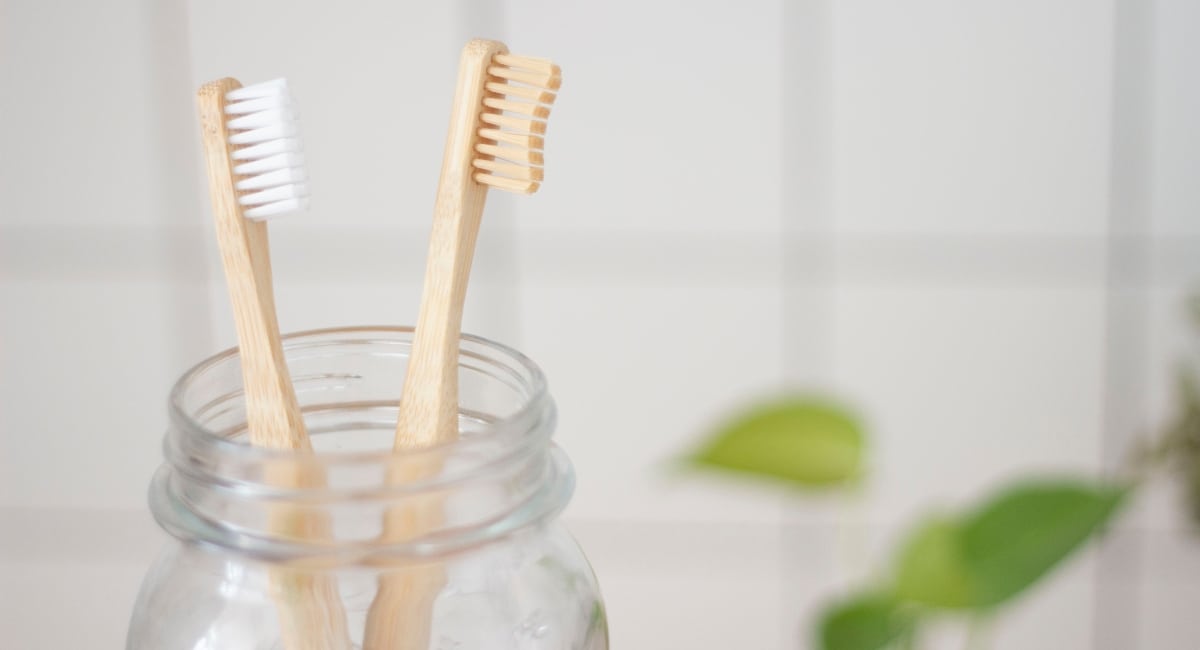
Keep cups
It is estimated Australians waste about 1 billion disposable coffee cups each year. A reusable coffee cup is a simple way to do your bit towards reducing that statistic. (Plus, the coffee tastes way better!)
What eco-friendly alternatives have you employed in the home?
You might also like…
5 Easy ways to detox your bathroom
3 Ways to boost your child’s gut health
